Whatever you want to do, books will help you do it. Whether it’s
changing careers, learning a new skill, or simply escaping to another
world for a few hours – the right books will get you there.
Now that ebooks are growing in popularity, it’s never been easier to find
what you’re looking for. There are millions to choose from, many of
which are free. You no longer have to lug around a weighty tome, but can
carry thousands of ebooks on any e-reading device, laptop, or tablet –
even a mobile phone.

The world’s greatest literature, reference, and business books are just
a few clicks away. To help you find them, we’ve put together a list of
our 5 favorite free ebook sites.
Enjoy…
The 5 best places to find free (legal) ebooks
1. Project Gutenberg
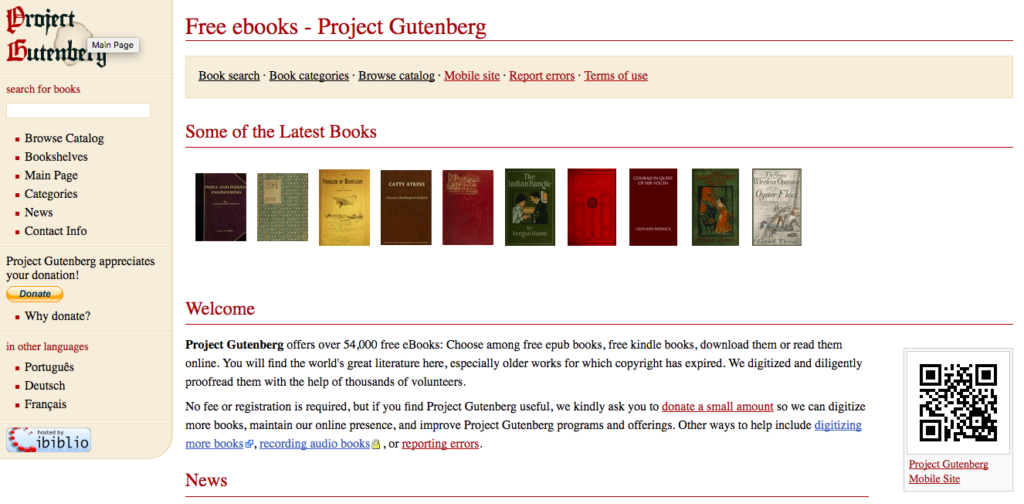
Project Gutenberg is the oldest digital library in the world. Founded in
1971, it has mostly specialized in digitizing classics whose copyright
expired and that are now in the public domain. Now it has over 54,000
e-books, which you can search for by title, author, or keyword.
If you’re not looking for a specific book, you can browse the collection
by “bookshelf,” which is Project Gutenberg’s name for categories such as
Science, Classics, and Law. The categories don’t drill down very deeply,
so I recommend having some idea of what you’d like to read first – a
title, author, or subject would be ideal – and searching for it.
You can also browse by Title, Author, Language, and Recently Posted,
which is great if you’d like to brush up on your language skills by
tackling a familiar title in another language (Don Quixote in Spanish,
for example).
Once you’ve found your book, you can download it in a variety of
formats, including plain text, HTML, PDF, MOBI, EPUB, and Plucker. That
covers pretty much all devices, and you don’t even need to register to
start reading.
2. Amazon
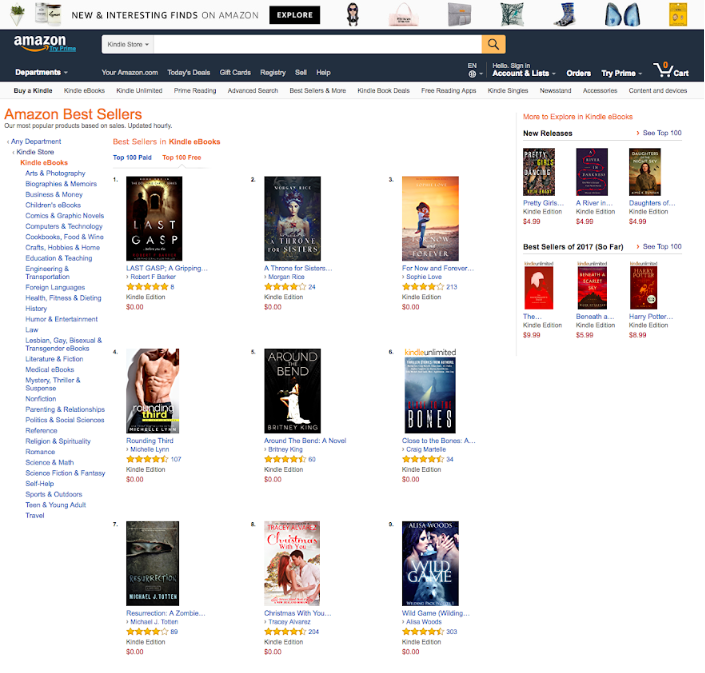
Amazon has ruled the digital ebook market for some time now, with its spectacular book selection (over 5 million, according to this source) and cheap, functional e-readers. Yet despite ebooks being a lot cheaper to produce, Amazon’s prices for newer titles aren’t that much cheaper than the paperback versions. Still, Amazon does make it easy to find free books using their search function, and lists the top 100 bestselling free ebooks across various genres.
Given Amazon’s huge catalog, you’re bound to find something you like, and their reviews section make it easy to see whether the ebook will live up to its promise. If you’re an Amazon Prime member, you can also take advantage of their “Prime Reading” offer, which lets you select one title from six (all editors’ picks) which you can download and keep for free. There’s also the Kindle Owners’ Lending Library, which lets you borrow books for an unlimited amount of time (only available to Prime members).
Amazon has done a great job of making it easy to find free ebooks, but there’s one catch: All their books are formatted for the Kindle and Kindle app. This won’t be an issue if you already have one, but if not, you’ll need to do some converting before adding them to your device (I recommend Calibre). You also need an Amazon account to download books, but it’s free to sign up.
3. ManyBooks
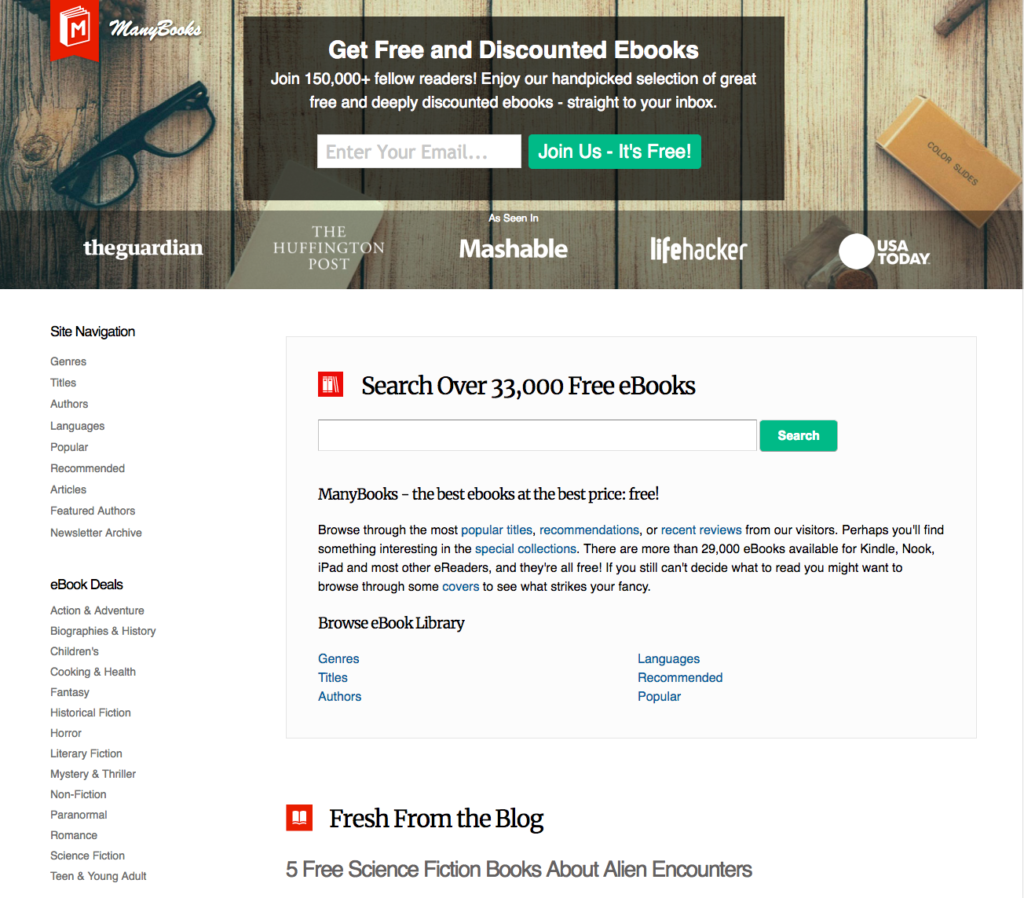
ManyBooks started in 2004, mostly offering books from the Project Gutenberg archives. Since then, its library has grown to over 33,000 free ebooks, and new titles are added regularly. Alongside stalwart classics, it showcases a lot of self-published authors, so expect the quality to vary somewhat.
The website is easy to navigate, with a bar at the top left to switch between various categories, including Title, Genre, Language, and Popular. An individual book’s page lists useful information about it, such as its length and publication date, and there are reviews from site users, too.
Some books are downloaded directly from ManyBooks, and you get a choice of format, meaning it supports most ebook readers. Other titles link to Amazon, Kobo, and so on – this seems to be exclusively for books that are on special offer and includes those that are discounted but not free (I suspect this is how ManyBooks makes money.)
Although there’s no need to register with ManyBooks to download, there’s a heavy emphasis on its daily newsletter, which it promotes throughout the site. It’s up to you whether or not to sign up, but if you’re not a particularly voracious reader, a daily email might be a bit much.
4. The Open Library
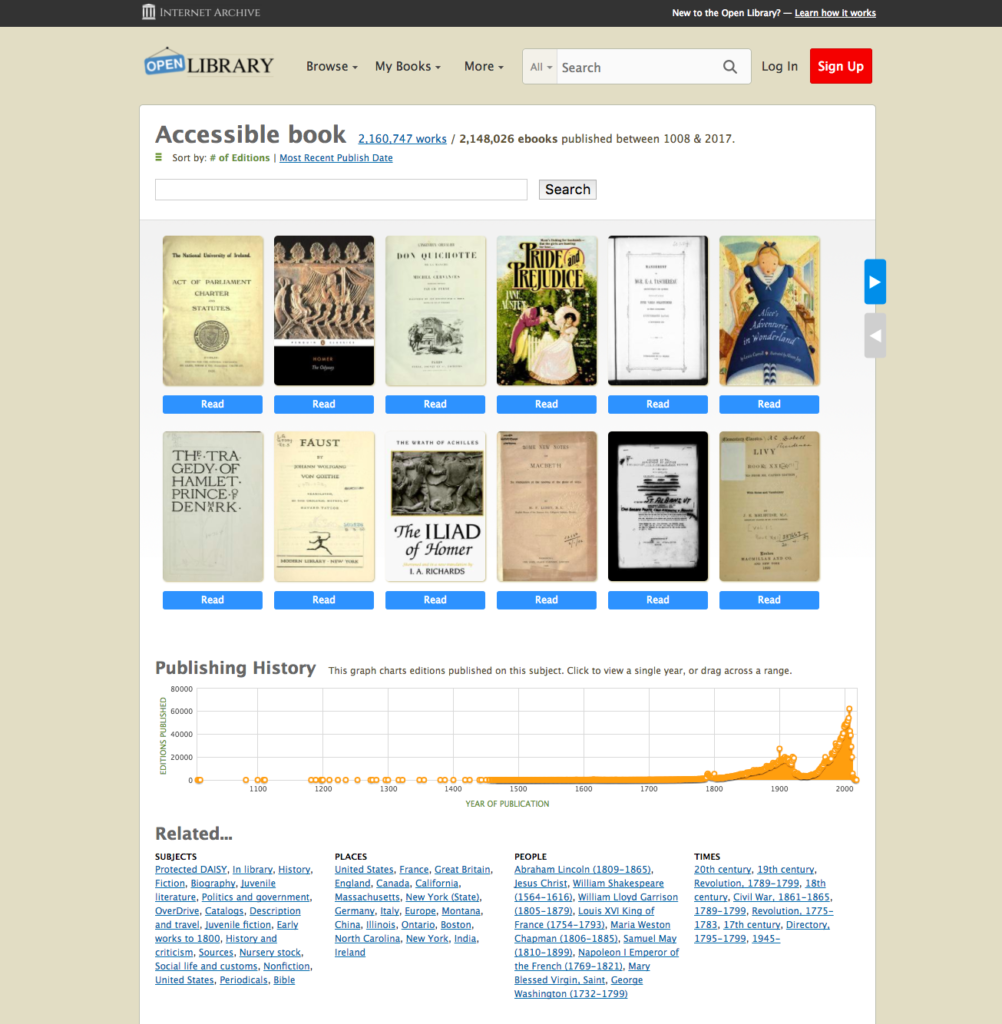
The Open Library is part of the Internet Archive, which aims to collate all the world’s digital media on one site (books, films, music, web pages, and so on). Open Library deals with books, and has an enormous catalog of over 3 million free versions, and provides links to Amazon and WorldCat for anything it doesn’t have. It has all Project Gutenberg’s titles and, according to the site, “hundreds of thousands of others”. But not all titles are free, nor even available, as it includes records of out-of-print, rare, and antique books, too.
Open Library uses “special subjects” to divide its catalog. “Accessible” books are those that are free and you can download today. These are mostly classics in the public domain, and you can read these, without registering, either online or by downloading the ebook and reading it on your device. To see the full list of free ebooks, click “Browse”, “More subjects”, and “Accessible books.” More recently released ebooks are available to borrow by registering for an Open Library card (check that your local library participates in the Open Library program, first).
5. Librivox
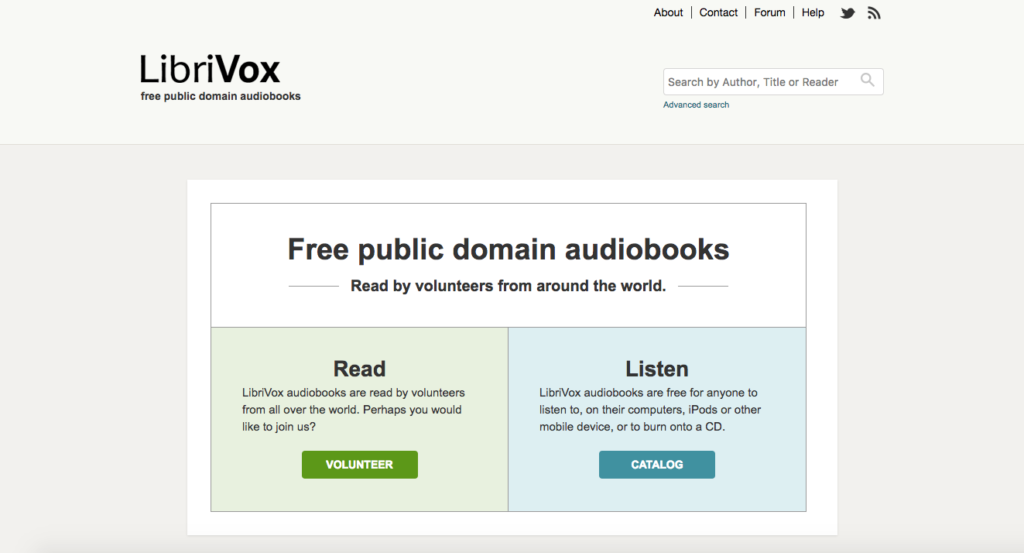
Started in 2005, Librivox is a library of free audiobooks read by volunteers. Although audio books aren’t technically ebooks, this is a great way of enjoying books on the move, keeping you entertained and informed on your morning commute.
The Librivox library uses Project Gutenberg’s titles, with the Internet Archive hosting the audio. That means you’ll mostly have access to classics. For some, this might be an easy way of familiarizing yourself with literature if you don’t have the time to read the books themselves, or if your sight is impaired.
As well as being able to listen online, you can download the titles in MP3 for use at home or on your mobile phone. There are links to the ebook versions on each title’s page, and they run a thrice weekly podcast (if you’d prefer to listen that way). All books are recorded in 128 kbit/s which makes for pleasant, artifact-free listening.
So there you have it – five great websites with millions of ebook titles to choose from. All the classics are here, and many others, too. So if it’s time to brush up on your interview skills, familiarize yourself with Dickens, or just while away the hours with a bit of romance, hit the free books first and save yourself some cash.

